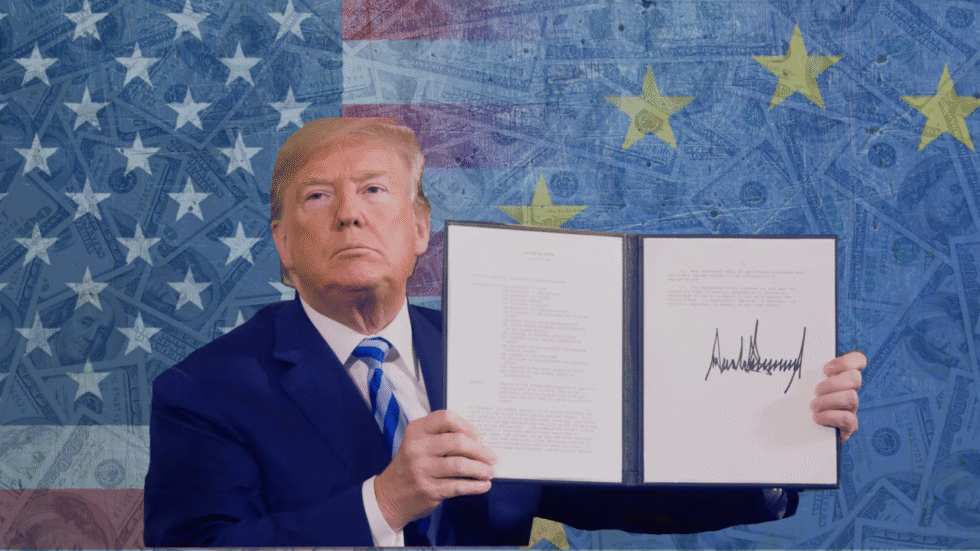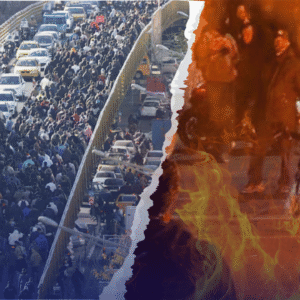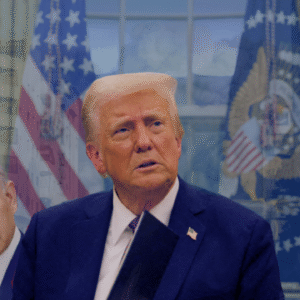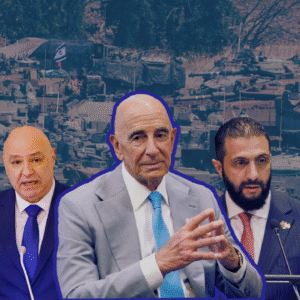When Sanctions Kill: The Hidden Cost of New Age Imperialism

Last month, a bombshell report from the Lancet Global Health journal revealed a staggering statistic: economic sanctions imposed by the United States and European Union are linked to over 38 million deaths globally since 1971, with more than half a million people dying each year due to these coercive measures.
The findings sent ripples through diplomatic circles and human rights forums—but for much of the public, the news barely registered. Sanctions, despite their devastating consequences, are often framed as bloodless, bureaucratic instruments of diplomacy. Yet the reality they produce on the ground is anything but bloodless.
The Cold War Roots of Sanctions Policy
While sanctions have existed for centuries, their modern role in U.S. foreign policy transformed during the Cold War, especially under President John F. Kennedy. In 1962, Kennedy formalized the trade embargo on Cuba, marking the first time economic sanctions were deployed not as temporary pressure but as a sustained geopolitical strategy. From there, sanctions steadily evolved—from Nixon’s restrictions on Chile, to Reagan’s embargoes on Nicaragua, Libya, and Iran, to Clinton’s “dual containment” of Iraq and Iran.
What began as a tool of diplomacy became, by the late 20th century, a central mechanism of U.S. imperialism: a way to force other nations into alignment without deploying troops. The 1977 International Emergency Economic Powers Act (IEEPA) granted the U.S. president sweeping powers to freeze assets and restrict trade, laying the legal foundation for a global sanctions apparatus. By the 2000s, sanctions had become bureaucratized and weaponized, enforced globally through the U.S. Treasury’s Office of Foreign Assets Control (OFAC) and backed by the threat of secondary sanctions.
Today, the mere threat of U.S. sanctions can isolate entire economies, demonstrating how economic coercion has supplanted military invasions as the primary means of enforcing American dominance.
Sanctions as Collective Punishment
Far from being precision tools of policy, unilateral sanctions have become weapons of mass disruption; crippling entire economies, gutting health systems, and cutting off vital supplies to the most vulnerable populations.
The new data shows that children under five account for more than 50% of the lives lost due to sanctions. Starvation, untreated illnesses, blocked medical imports, and destroyed public services are among the leading causes.
“Economic sanctions may not drop bombs, but they starve hospitals and block insulin,” said researcher Francisco Rodríguez, one of the study’s lead authors. “They kill with paperwork and compliance clauses.”
U.S. and EU: The Leading Enforcers
The study finds that the vast majority of these deaths—approximately 95%—can be attributed to unilateral sanctions by the U.S. and EU, rather than those sanctioned by the UN Security Council. This distinction matters. UN sanctions, though controversial, usually come with humanitarian carve-outs and international oversight. U.S. and EU sanctions, on the other hand, often bypass these constraints and impose total financial and trade isolation on targeted states.
From Cuba and Iran to North Korea, Syria, Venezuela, and Zimbabwe, Washington and Brussels have used sanctions to squeeze governments they deem hostile or noncompliant. But more often than not, it’s ordinary civilians who suffer most.
Iraq: Siege of the 90s
In the aftermath of the Gulf War, the U.S. pushed for some of the harshest sanctions ever implemented. UNICEF estimated that between 1991 and 1998, over 500,000 Iraqi children died from preventable causes due to the collapse of basic health infrastructure. Medical equipment, water sanitation supplies, and nutritional aid were blocked under the sanctions regime.
Then-U.S. Secretary of State Madeleine Albright was asked in a 1996 60 Minutes interview whether the death of half a million Iraqi children was worth it. Her reply: “I think this is a very hard choice, but the price—we think the price is worth it.”
Iran: The Modern Medical Stranglehold
Iran’s healthcare system, once the most advanced in the region, has been gutted by successive waves of U.S. sanctions. Dozens of children with epidermolysis bullosa—a rare genetic skin disease—have died in recent years due to restrictions on wound dressings. Cancer medications, insulin, and HIV treatments have all faced delays or denials, even during the COVID-19 pandemic.
Washington insists humanitarian goods are exempt. But in practice, overcompliance by banks and suppliers fearing secondary sanctions have rendered these exemptions meaningless.
North Korea: Humanitarian Dead Zones
A 2018 WHO assessment estimated that over 4,000 North Koreans died unnecessarily due to delayed humanitarian shipments, including vaccines and hospital equipment. Agricultural sanctions have also worsened food insecurity, as NGOs face hurdles in delivering basic aid.
Yemen: Starvation Through Sanctions
While war and blockade have drawn the most attention, U.S. and EU sanctions on key sectors of the Yemeni economy have further collapsed an already devastated nation.
Aid groups have repeatedly warned that restrictions on fuel imports and financial transfers exacerbate cholera outbreaks, hunger, and maternal deaths.
Syria: Sanctions and Selective Rehabilitation
Syria stands as a stark example of how sanctions function less as a response to humanitarian atrocities and more as instruments of political coercion. Since 2011, U.S. and EU sanctions have devastated Syria’s economy—collapsing its currency, crippling infrastructure, and plunging over 90% of the population into poverty.
Yet the discussion around lifting or easing sanctions only began to gain momentum when political actors aligned with Western interests emerged—most notably Abu Mohammad al-Jolani in northwest Syria, and took over most of the country following an offensive in late 2024 which toppled the old republic. Once designated a terrorist and sanctioned by the U.S., al-Jolani, the leader of Hay’at Tahrir al-Sham (HTS), has undergone a Western media rebranding campaign in recent years, appearing in suits rather than military fatigues and granting interviews to U.S. outlets. His openness to “normalization” and “distancing” from Al-Qaeda have coincided with a noticeable shift in U.S. posture to Damascus.
For years, Damascus—under the Ba’athist government led by former President Bashar al-Assad—was subjected to suffocating Western sanctions, despite holding international recognition and presiding over a collapsing humanitarian landscape, with even earthquake relief efforts having been hindered by Western restrictions. This selective rehabilitation illustrates the true logic of sanctions: they are not lifted when humanitarian conditions improve, but when leaders demonstrate strategic compliance. In Syria’s case, economic asphyxiation is maintained or relieved not based on civilian suffering—but on geopolitical loyalty.
Selective Sanctions: The Double Standards of “Rules-Based” Punishment
While sanctions are often presented as moral tools of justice, their application is deeply inconsistent—revealing political priorities rather than principled ethics. The United States and European Union have levied crippling sanctions on countries like Iran, Venezuela, Syria, and North Korea, often citing human rights abuses, alleged terrorism, or nuclear threats. Yet some of the most egregious violators of international law have faced no such economic punishment.
Israel, for example, has carried out decades of illegal settlement expansion, enforced apartheid policies, and in recent years, conducted mass bombardments of Gaza resulting in thousands of civilian deaths—actions condemned by UN bodies and human rights organizations including Human Rights Watch and Amnesty International. and even recently described as acts of genocide by a UN inquiry. Still, no U.S. or EU sanctions have ever been imposed. Despite this, no US sanctions have been imposed; instead, Israel receives billions in U.S. military aid annually.
Likewise, Saudi Arabia and the United Arab Emirates, key U.S. and EU allies, led a devastating blockade and bombing campaign in Yemen beginning in 2015 that contributed to what the UN has called “the world’s worst humanitarian crisis.” Despite reports of indiscriminate airstrikes, starvation blockades, and war crimes, Western governments continued to supply arms to both states and blocked efforts to sanction them at the UN Security Council.
This glaring double standard reveals the political calculus behind sanctions: compliance with Western geopolitical goals—not human rights—is the decisive factor in whether a state is punished or protected.
Policy Failures and Moral Reckonings
Proponents argue that sanctions are necessary diplomatic tools, implemented to avoid military escalation. But their success rate is a dismal 20%, according to data from the Peterson Institute for International Economics. Yet even this term—“success”—demands scrutiny. In the context of U.S. foreign policy, a “successful” sanction simply means that enough economic pressure has been exerted on a country to force compliance with American interests—often through suffering rather than persuasion. It is a tool of coercion by design, engineered to achieve the same outcomes as military intervention, only without the optics of war. The language of diplomacy masks its reality: economic warfare with civilian populations as collateral.
What’s more, as U.S. and EU sanctions have proliferated, so has global resentment. Nearly 25% of the global population now lives under some form of unilateral sanction—a number that has ballooned since 2001 and even more since 2014.
Critics argue this is not about human rights, but about punishing geopolitical disobedience.
“Sanctions are not about behavior change—they’re about domination,” says Alfred de Zayas, former UN Independent Expert on International Order. “Their use is inconsistent, selective, and racist.”
The Quiet War
If war crimes are judged by the scale of human suffering inflicted, then sanctions deserve scrutiny alongside bombs and bullets. The new report forces a sobering question: How many lives must be lost before economic sanctions are treated not as diplomacy, but as warfare?
As the world reconsiders the ethics of military force, it must also confront the quiet, calculated violence of economic siege. In the name of a “rules-based order,” millions have been condemned not by bullets—but by bureaucracy.
Yet amid the wreckage, resistance is growing. Countries like Iran have adopted what is formally called a “Resistance Economy”: a national doctrine built on reducing import dependency, boosting domestic manufacturing, and protecting strategic sectors from foreign pressure. Developed in response to decades of sanctions, it reframes economic self-reliance as a form of sovereignty and survival.
Russia has also accelerated this shift, especially after its 2022 financial isolation from the West. It has moved billions in trade to alternative currencies like the Chinese yuan, forged energy deals with Global South partners, and embraced de-dollarization policies as a matter of long-term strategy. Meanwhile, North Korea — though far more isolated — has responded to international pressure by tightening internal production and centralizing state control, echoing the resilience principles behind Iran’s model.
Sanctions, designed to isolate and fracture, have ironically spurred new alignments. BRICS nations and others across the Global South are working to reduce reliance on the U.S. dollar and explore alternatives to Western-led financial systems. In this quiet economic insurrection, sanctions may be undermining the very imperial order they were meant to uphold.
If you value our journalism…
TMJ News is committed to remaining an independent, reader-funded news platform. A small donation from our valuable readers like you keeps us running so that we can keep our reporting open to all! We’ve launched a fundraising campaign to raise the $10,000 we need to meet our publishing costs this year, and it’d mean the world to us if you’d make a monthly or one-time donation to help. If you value what we publish and agree that our world needs alternative voices like ours in the media, please give what you can today.














